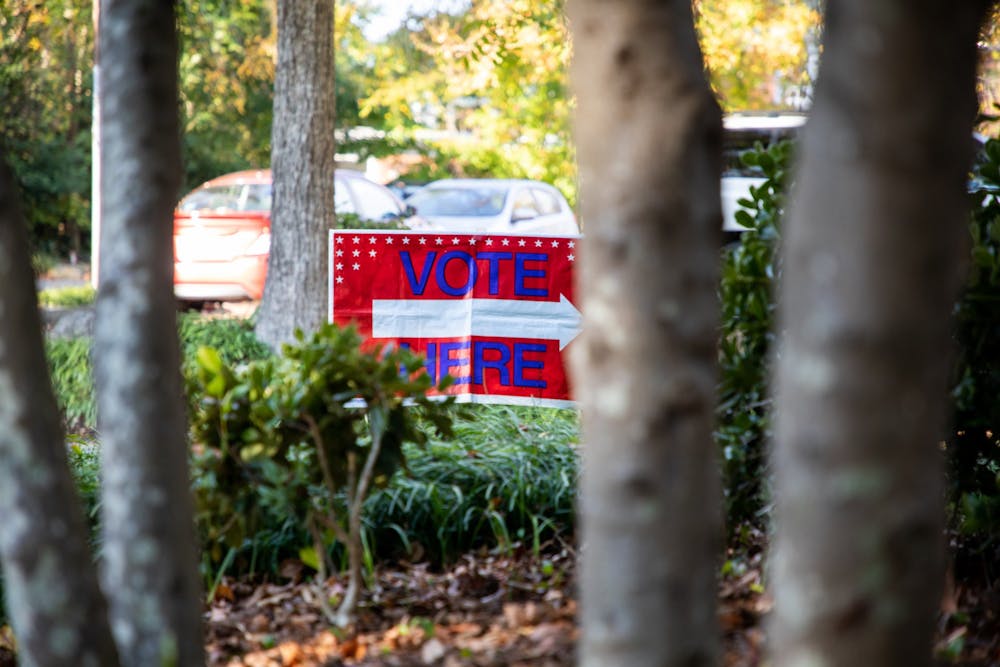“Even if you moved out of a dorm the last day of exams, your voting address for the May 17 primary is still your address April 17,” Gerry Cohen, member of the Wake County Board of Elections, said.
For more information about pre-registration, click here. For more information about same-day registration, click here.
How to vote
Early voting will take place from April 28 to May 14. During early voting, registered voters may cast their ballot at any one-stop early voting site in the county.
On election day, voters must vote at their designated site The site is determined by your registered address.
North Carolina has a voter search tool that allows residents to look up their registration status, voting location and a sample ballot.
When arriving at a voting location, voters receive a ballot with the candidates for their registered political party. If they are unaffiliated, they may choose which ballot they would like to vote on, said Patrick Gannon, Public Information Director at the N.C. State Board of Elections.
“Once you have your sample ballot, you can use that to google the folks on the ballot to try to find information about them to educate yourself on their positions, etc., on various issues,” Gannon said.
Voters may take a sample ballot into the booth or reference a digital image to assist them with the process. But voters are not allowed to make phone calls or text while casting their ballot, Cohen said.
In addition, voters may choose by absentee ballot and can request one from the North Carolina Absentee Ballot Portal. The deadline to request a ballot is May 10, but Cohen said voters should apply by May 6 to make sure the ballot is secured.
If they choose to vote by absentee ballot, voters must have their return envelope signed by two witnesses or a notary. Ballots may be returned to an early voting location, the county board of elections office or by mail, Gannon said.
“We always encourage folks to try to send it in a bit early just to make sure any mail disruptions or anything else doesn't affect the return of your ballot,” he said.
To get the day's news and headlines in your inbox each morning, sign up for our email newsletters.
Voters can check the status of their absentee ballot using BallotTrax.
Who's on the ballot
The Orange County races include the County Board of Commissioners, Orange County Schools Board of Education, Sheriff, Clerk of Court and Register of Deeds.
County Commissioners help to establish the county budget, appoint various county officials, and enact ordinances, among other tasks. Board of Education members set policy and direction for the local school district.
The Sheriff is in charge of law enforcement in the county. The Clerk of Court is in charge of keeping track of court information in the county. The Register of Deeds is in charge of marriage licenses, passports and birth certificates.
At the state level, there are seven elections — the Senate, the House of Representatives, the Supreme Court, the Court of Appeals, the Superior Court, the District Court and the District Attorney.
The federal elections are for the U.S. Senate and U.S. House of Representatives.
@k8e_mack
@DTHCityState | city@dailytarheel.com
CORRECTION: Due to an editing error, a previous version of this article incorrectly stated whether voters are allowed to make phone calls or text while casting their ballot. Voters are prohibited from doing so. The Daily Tar Heel apologizes for this error.




